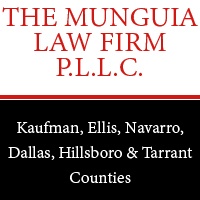Hillsboro Juvenile Law Lawyer, Texas
Sponsored Law Firm
-
 x
x

Click For More Info:
-
Stephanie Alvarado Attorney at Law
100 N Central Expy Suite 805 Richardson, TX 75080» view mapCriminal Defense Law Fighting Against Unjust Prosecution
Attorney Stephanie Alvarado is there for her clients when help is needed right away. Helping people charged with crimes in Texas for over 20 years.
800-988-5471
Jesse Munguia
✓ VERIFIEDCivil Rights, Juvenile Law, Estate Planning, Family Law, Employment
The Managing Attorney is Jesse Munguia. We are a full service law firm. We primarily service clients in Divorce, Child Custody, Child Support Modifica... (more)
Aaron James Fiorentino
Juvenile Law, Other, Family Law, Divorce & Family Law
Status: In Good Standing Licensed: 17 Years
Andrea Deeann Strother
Juvenile Law, Estate Planning, Family Law, DUI-DWI, Criminal
Status: In Good Standing
Andrea Brett Morgan Boedeker
Juvenile Law, Estate Planning, Family Law, DUI-DWI, Criminal
Status: In Good Standing Licensed: 10 Years
Andrew Michael Wolf
Juvenile Law, Government, Criminal, Administrative Law
Status: In Good Standing Licensed: 19 Years
Angela Ashley Allen
Administrative Law, Personal Injury, Family Law, Juvenile Law
Status: In Good Standing Licensed: 20 Years
Ashley Gale Vaughan
Arbitration, Entertainment, Environmental Law Other, Juvenile Law
Status: In Good Standing Licensed: 5 Years
 Stephanie Alvarado Richardson, TX
Stephanie Alvarado Richardson, TX Practice AreasExpertise
Practice AreasExpertise

